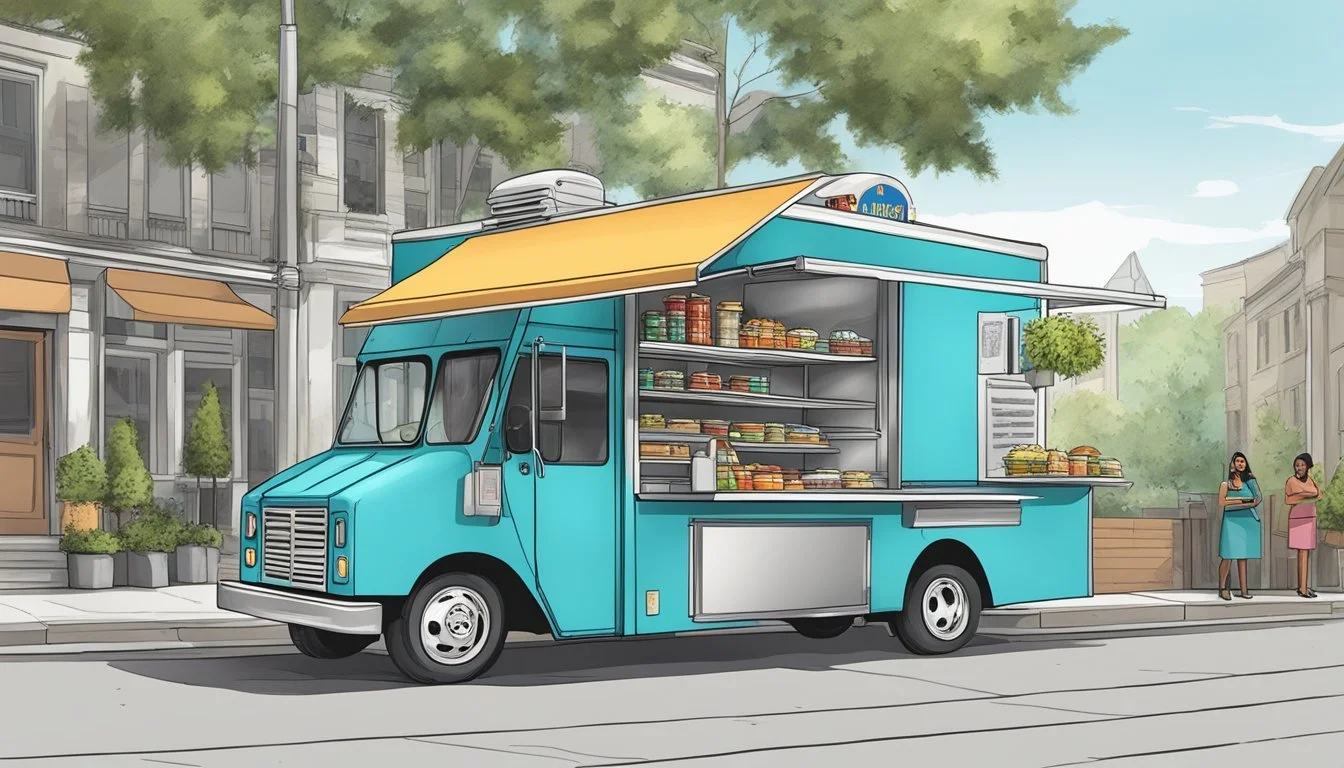Food Truck Laws in Alabama
Navigating Regulations for Mobile Vendors
In Alabama, the burgeoning food truck industry is a vibrant part of the local food scene, providing a diverse array of culinary options to residents and visitors alike. However, operating these mobile food units involves navigating a series of regulatory requirements that ensure public safety and fair business practices. Alabama's food truck laws are designed to maintain high standards of food safety, safeguard public health, and integrate food trucks into the community responsibly.
To operate a food truck in Alabama, owners must acquire various licenses and permits that correspond to specific local and state-level regulations. The permits required often include a general business license, a mobile food facility permit, and a public health permit. Additionally, food truck operators must often adhere to zoning regulations and may need further approval depending on the municipality in which they plan to operate.
Understanding the intricacies of these regulations is crucial for entrepreneurs to successfully launch and sustain a food truck business in Alabama. Compliance with food truck laws is monitored by local health departments, and failure to meet the requisite standards can result in fines or closure. As such, continuous adherence to Alabama's food safety rules is not only a legal requisite but also a cornerstone for the ongoing success of a food truck enterprise within the state.
Getting Started
Starting a food truck business in Alabama involves a clear understanding of state-specific food truck laws, choosing an appropriate business structure, and obtaining necessary identification numbers. This foundational groundwork is crucial for establishing a lawful and functional operation.
Understanding Food Truck Laws in Alabama
Alabama mandates that food trucks operate with a Business License and a Mobile Food Facility Permit. They must also obtain a Public Health Permit and adhere to guidelines outlined by the Alabama Department of Public Health, such as the use of a commissary and proper waste disposal methods. For a comprehensive breakdown of these requirements, food truck operators can refer to the Alabama Department of Public Health.
Choosing the Right Business Structure
Individuals starting a food truck venture must choose a business structure that aligns with their strategy and financial goals. The most common entities include a Limited Liability Company (LLC), sole proprietorship, or partnership.
LLC: Protects personal assets with limited liability, offers tax advantages, and increases credibility.
Sole Proprietorship: Simplest structure, no formal action required to establish, and offers full control to the owner.
Partnership: Suitable for businesses with multiple owners, sharing profits, losses, and management duties.
Obtaining an Employer Identification Number (EIN)
An EIN, also known as a Federal Tax Identification Number, is essential for various business functions, including hiring employees and opening bank accounts. LLCs, partnerships, and sole proprietorships with employees in Alabama are all required to obtain an EIN from the Internal Revenue Service. Acquiring an EIN is a free service provided by the IRS, and it can be done quickly online through the IRS website.
Licensing and Permits
Operating a food truck in Alabama requires navigating a series of licenses and permits to ensure compliance with state and local regulations. From obtaining a business license to ensuring food safety through health permits, adherence to laws is paramount.
Securing a Food Truck License
In Alabama, food truck operators must first secure a business license from the local county or city clerk. This is a fundamental step that legitimizes the business for operation within the respective municipality. The process for acquiring this license varies, taking into account the specifics of where the food truck plans to operate.
Health Permits and Safety
A health permit is mandatory, illustrating the food truck's adherence to public health guidelines. To obtain this, the owner must ensure that all food handling and storage within the truck meet the requirements set forth by the Alabama Department of Public Health. Regular inspections ascertain ongoing compliance.
Special Event and Temporary Permits
When participating in events or operating on a temporary basis, food trucks may need additional permits. For instance, a temporary food service establishment permit is mandatory for event participation and must be secured well in advance. Specific details, including permit fees and deadlines, are outlined in guidelines provided by county health departments.
Fire and Safety Requirements
An important aspect not to be overlooked is the fire safety of the food truck. This includes installing a fire suppression system and undergoing periodic inspections. Ensuring fire safety not only protects the business and its patrons but is also a critical component of the permits and licensing process.
Setting Up Your Food Truck
Setting up a food truck in Alabama involves a clear understanding of location ordinances, vehicle compliance, food safety, and menu regulations. Operators must navigate these requirements to launch a successful mobile food enterprise.
Location and Parking
A food truck owner must secure a proper address for their base of operations, generally a commissary or other approved facility. They must comply with local zoning laws regarding where the vehicle can be parked for both sales and off-hours storage. Each municipality may have its distinct set of regulations dictating permissible parking locations for mobile food vendors.
Vehicle and Equipment Specifications
Food trucks are subject to rigorous vehicle and equipment specifications. The vehicle should be fitted with the necessary facilities for food preparation and storage, ensuring it meets the minimum required standards for operation. In Alabama, this includes adequate refrigeration, cooking appliances, and sanitation equipment. Details can be found in the Mobile Food Requirements provided by the Department of Public Health.
Food Preparation and Handling
Strict food preparation and handling standards are set by the Alabama Department of Public Health to minimize foodborne illnesses. Food truck operators must establish procedures that adhere to these guidelines, including maintaining correct food temperatures, ensuring proper cooking, and following cross-contamination prevention methods.
Menu and Labeling Compliance
The menu should be crafted with adherence to labeling laws, which includes listing ingredients and identifying potential allergens. Food labels are mandatory, and additional sales tax considerations may apply depending on the items sold. Operators should remain up-to-date with these requirements to avoid any legal complications and ensure transparency with customers.
Operational Guidelines
In Alabama, food truck operators must adhere to stringent operational guidelines that ensure food safety, compliance with regulations, and environmental responsibility. Mastery of these facets is essential for running a successful mobile food enterprise.
Handling Food Safely
Food trucks in Alabama are required to follow safe food handling practices as outlined by the ServSafe program, which is a nationally recognized food and beverage safety training and certificate program. They must ensure that all employees are trained in food safety to prevent foodborne illnesses. Food must be stored at correct temperatures, and cross-contamination must be avoided at all times.
Complying with State and Local Regulations
Operators must navigate a complex array of state and local regulations to legally operate a food truck in Alabama. They need a business license as well as a mobile food facility permit. Keeping abreast of county or city-specific requirements, which may include zoning approvals and additional permits, is crucial for legal operation.
Maintaining Sanitation Standards
Sanitation is paramount in food trucks to ensure customer safety and trust. Alabama Department of Public Health mandates that food trucks operate from a commissary that meets all requirements of 420-3-22-.09, providing the necessary infrastructure for cleaning and sanitizing equipment and utensils effectively.
Managing Waste and Environmental Impact
Food trucks must manage waste properly to minimize their environmental impact. This involves responsibly disposing of wastewater and solid waste, adhering to regulations on emission controls, and promoting sustainable practices where possible. Environmental stewardship is not only a legal obligation but also a social responsibility for food truck operators.
Financial Aspects
Operating a food truck in Alabama has its own set of financial challenges, from managing sales tax obligations to understanding the repercussions of noncompliance. It is essential for food truck owners to stay informed and prepared for these aspects to ensure the smooth operation of their businesses.
Understanding Tax Obligations
The state of Alabama imposes a sales tax which food truck operators are required to collect from customers and remit to the state. The rate can vary depending on the county and municipality where the food truck is operating. For instance, operators should ensure they are charging the correct rate by consulting the Alabama Department of Revenue. They are required to file regular sales tax returns, and staying abreast of these obligations is crucial to avoid financial complications.
Navigating Fines and Penalties
Noncompliance with Alabama’s regulations can lead to fines and penalties. These may stem from late sales tax payments, failure to renew permits on time, or violating food safety regulations. In Alabama, the penalties and fines can vary, making it essential for food truck owners to comply with all regulatory requirements. It's recommended to set reminders for important filing dates and renewal deadlines to avoid these financial pitfalls.
Expansion and Growth
In Alabama's dynamic food truck industry, successful expansion often includes diversifying services and leveraging community events. Food truck owners are finding that these strategies not only contribute to their growth but also strengthen their presence in the local food scene.
Catering and Expansion into Other Services
Food trucks in Alabama can enhance their business model by offering catering services. This extension enables them to serve at private events, such as weddings and corporate gatherings. By providing catering, food truck operators tap into a new revenue stream and increase their brand visibility. It's important for businesses to comply with local catering requirements to ensure a smooth expansion of their services.
Participating in Festivals and Community Events
Participation in festivals and community events is a strategic move for food trucks looking to grow. These events offer a platform to reach new customers and create a loyal following. Alabama hosts numerous food festivals and community gatherings throughout the year, providing ample opportunities for food trucks to showcase their culinary offerings and engage with the community. Food truck owners must ensure they have the necessary permits to operate at these events and should consider the logistics of space and crowd management to make the most of these opportunities.






